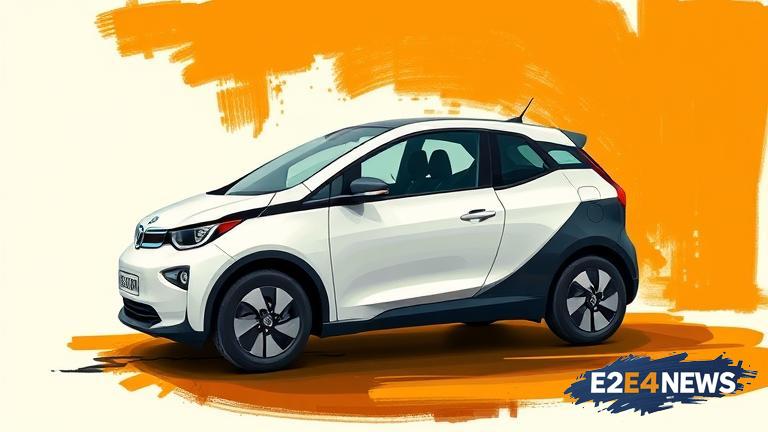The Indian government has announced a comprehensive plan to promote the adoption of electric vehicles (EVs) in the country. The plan includes a range of incentives and initiatives to encourage the use of EVs, including tax breaks, subsidies, and investment in charging infrastructure. The government has set a target of having at least 30% of new vehicle sales be electric by 2030. To achieve this goal, the government will provide subsidies to manufacturers of EVs, as well as to buyers of electric cars and two-wheelers. The subsidies will be in the form of tax breaks and rebates, and will be available for a period of three years. The government will also invest in the development of charging infrastructure, including the installation of charging stations along highways and in cities. The plan also includes measures to promote the use of EVs in public transportation, such as buses and taxis. The government will provide subsidies to state governments to purchase electric buses, and will also encourage private companies to operate electric taxis. In addition to these measures, the government will also promote research and development in the field of EVs, including the development of new battery technologies and other components. The plan is expected to have a significant impact on the environment, as EVs produce zero emissions and can help to reduce air pollution in cities. The plan is also expected to create new job opportunities in the EV sector, including in manufacturing, sales, and maintenance. The government has estimated that the plan will require an investment of over $10 billion over the next five years. The plan has been welcomed by the automotive industry, which sees it as a major opportunity for growth and development. The industry has committed to investing heavily in the development of EVs, and several major manufacturers have already announced plans to launch new electric models in the Indian market. The plan has also been welcomed by environmental groups, which see it as a major step forward in reducing India’s carbon footprint. However, some critics have expressed concerns about the plan, including the high cost of EVs and the lack of charging infrastructure in some parts of the country. Despite these challenges, the government is confident that the plan will be successful, and has committed to monitoring its progress closely. The plan is part of a broader effort by the Indian government to reduce the country’s dependence on fossil fuels and promote the use of renewable energy. The government has set a target of generating 40% of the country’s electricity from non-fossil fuels by 2030, and is promoting the use of solar and wind power to achieve this goal. The plan to promote EVs is seen as a key part of this effort, and is expected to play a major role in reducing India’s carbon emissions and promoting sustainable development. The government has also announced plans to promote the use of EVs in rural areas, where they can help to reduce pollution and promote economic development. The plan includes measures to provide subsidies to farmers to purchase electric tractors and other vehicles, and to promote the use of EVs in rural transportation. Overall, the plan to promote EVs in India is a major step forward in promoting sustainable development and reducing the country’s dependence on fossil fuels. With its comprehensive range of incentives and initiatives, the plan is expected to have a significant impact on the environment and the economy, and to help India achieve its goals of reducing carbon emissions and promoting sustainable development.
